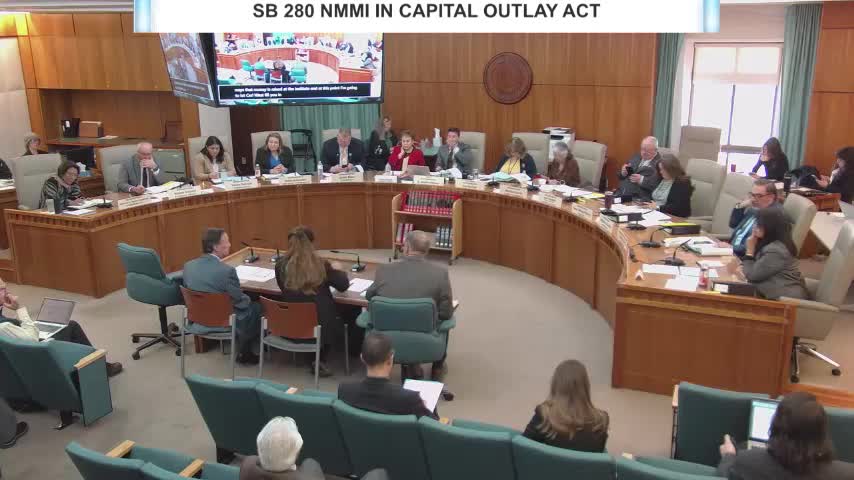House Education Committee backs bill to require multi-year plans and outside review for Public Education Reform Fund
Get AI-powered insights, summaries, and transcripts
Subscribe
Summary
The committee approved Senate Bill 201, which would require the Public Education Department to develop multi-year accountability and evaluation plans for initiatives funded through the Public Education Reform Fund and align school support budget requests to a September 1 deadline; the measure passed the committee 11–1.
Senate Bill 201 would require the Public Education Department to develop accountability and evaluation plans for initiatives funded through the Public Education Reform Fund and have those plans approved by the Department of Finance and Administration (DFA), the Legislative Finance Committee (LFC) and the Legislative Education Study Committee (LESC). The House Education Committee voted 11–1 to give the bill a “do pass” recommendation to the full House.
The bill sponsor, Senator Gonzales, told the committee the measure ties funding for six major initiatives — including supports for unhoused students, secondary literacy training, math achievement, attendance supports, innovative staffing strategies and school transformation efforts — to a three-year funding window. The sponsor said the appropriations contingent on the bill total $82,500,000 over three years.
The bill would also move the submission deadline for public school support budget requests to Sept. 1 to align with other state agencies. Kirsty Tyson, director of K–12 education at the LANL Foundation, testified in support and said, “Having multiyear budgets would create for better planning and development of programs utilizing per funding.” Tyson told the committee that one-year, nonrecurring appropriations have created sustainability challenges for districts.
The Public Education Department (PED) opposed the bill in part. Greg Frost, assistant secretary of education at PED, said the department already provides evaluation information in its public school support requests and expressed concern that the bill imposes an unnecessary new requirement. “We are already doing this work,” Frost said, adding that the agency submits evaluation plans and research bases with its budget requests and that additional statutory requirements may be redundant.
Sonny Lou of the LFC described the bill as an attempt to create a consensus process, comparing it to the consensus revenue estimating group that jointly sets revenue assumptions. Lou said the proposal would have DFA, LFC and LESC “providing instructions along with PED on what the measures of success are gonna be for these appropriations, how the department is going to monitor and track progress, and then whether or not in the course of studying these initiatives, there should be changes to what we're measuring.”
Committee members were divided on the need for the bill. Representative Baca, who moved the do-pass motion, said the measure would give the interim committees more oversight and help align legislative priorities with large budget items. Representative Liu and others questioned whether the added oversight layer was necessary because, as they said, PED currently works with DFA, LFC and LESC on performance measures and reporting. Greg Frost described existing checks as: HB 2 appropriation language, interim presentations to LESC/LFC staff, and regular meetings on key performance indicators with DFA, LESC and LFC.
On the floor of the committee, Representative Baca moved a do-pass recommendation, with Representative Chatfield seconding. The roll call produced an 11–1 vote in favor. The committee’s recommendation does not itself change law; it sends the bill to the next step in the legislative process.
Clarifying details recorded during testimony included the bill’s explicit linkage to $82,500,000 of contingent appropriations over three years and the six initiative categories named by the sponsor. Witnesses and committee members repeatedly framed the proposal as establishing an early, cross-agency process to agree on evaluation measures and program timelines rather than as creating a new line‑item program manager.
